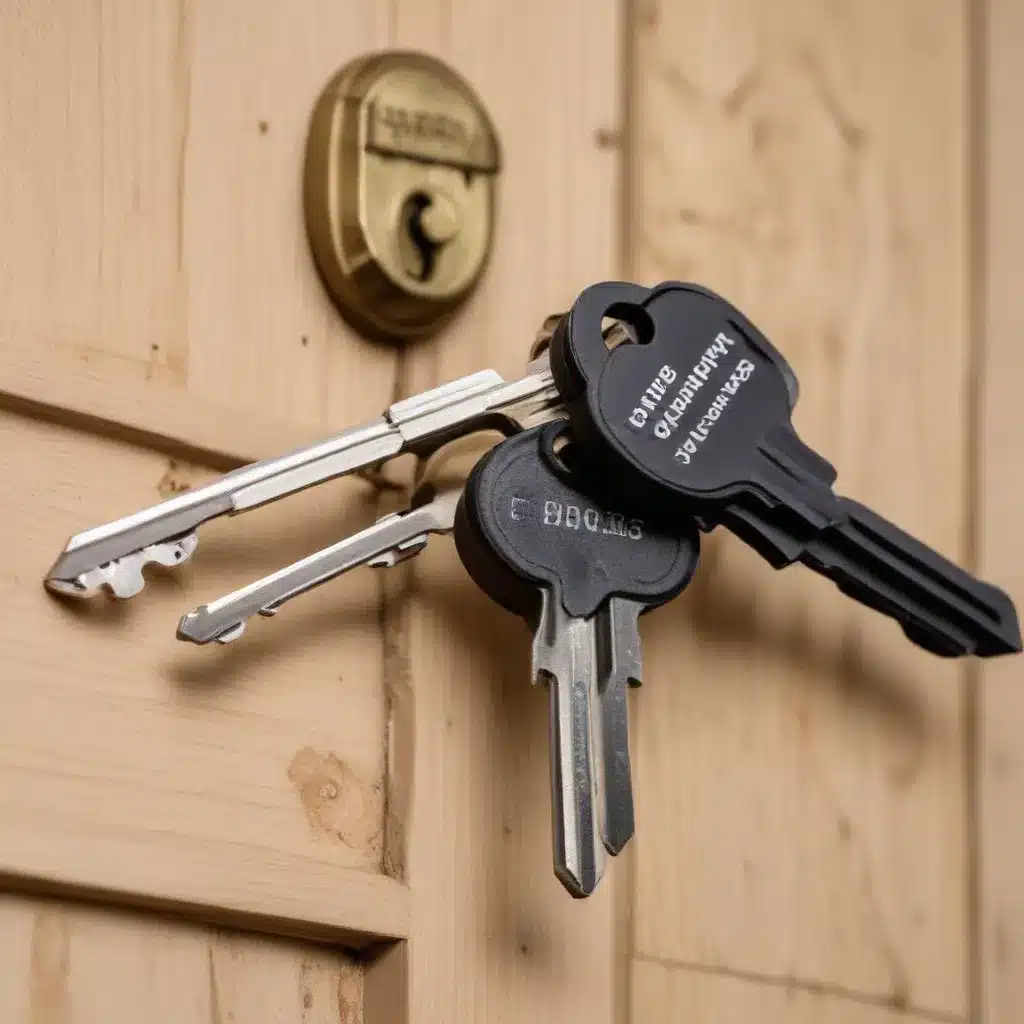
Cutting Keys with Confidence: Locksmith Techniques for Reliable Key Duplication
As an experienced locksmith serving the Washington, DC area, I’ve seen firsthand the importance of having reliable key duplication solutions. Whether you’re a homeowner, business owner, or vehicle owner, the ability to quickly and securely duplicate your keys can make all the difference in an emergency situation or day-to-day convenience.
In this comprehensive article, I’ll delve into the key duplication techniques that locksmiths employ, the various key types and materials, and the specialized equipment and expertise required to ensure a seamless duplication process. By the end, you’ll have a deeper understanding of how locksmiths approach key duplication, enabling you to make informed decisions about securing your property and assets.
Key Duplication Techniques
The world of key duplication has evolved significantly over the years, with advancements in both the design and security features of modern keys. As a result, locksmiths must possess a diverse skill set and utilize specialized equipment to handle the intricacies of key duplication.
Key Types and Materials
Standard Metal Keys: These are the most common type of keys, featuring a simple metal design. While they may seem straightforward, locksmiths must still exercise precision when duplicating these keys to ensure a perfect fit and proper functionality.
Transponder Keys: Transponder keys, often found in modern vehicles, incorporate an embedded electronic chip that communicates with the car’s security system. Duplicating these keys requires specialized equipment and programming to ensure the new key is recognized and accepted by the vehicle.
Keyless Entry Fobs: Keyless entry fobs, which allow for remote access to vehicles or buildings, present a unique challenge for locksmiths. These advanced keys utilize radio frequency (RF) technology, necessitating the use of specialized duplication tools and techniques to create a functional duplicate.
Key Duplication Equipment
To handle the diverse range of key types, locksmiths rely on a variety of specialized equipment, including:
Key Cutting Machines: These machines are designed to precisely cut the key’s profile, ensuring a perfect fit in the lock. Locksmiths must carefully calibrate the machine’s cutting depth and spacing to match the original key.
Key Code Readers: In some cases, locksmiths may not have access to the original key. By using a key code reader, they can determine the key’s unique code and then cut a new key that perfectly matches the original.
Locksmith Tools: In addition to cutting machines and code readers, locksmiths utilize a range of specialized tools, such as key blank selectors, depth gauges, and precision files, to ensure a high-quality duplication process.
Key Cutting Procedures
The key duplication process involves several critical steps, each requiring the expertise and attention to detail that locksmiths possess.
Measuring and Cutting
Locksmiths begin by carefully measuring the depth and spacing of the original key’s cuts, ensuring that the duplicate key will fit seamlessly into the lock. They then use the key cutting machine to precisely cut the new key, adjusting the blade depth and spacing to match the original.
Key Blank Selection
Selecting the appropriate key blank is crucial for a successful duplication. Locksmiths must carefully examine the original key and match it to the correct key blank, considering factors such as the key’s profile, material, and any unique features.
Quality Assurance
Once the new key has been cut, locksmiths perform a series of tests to ensure its functionality. They will test fit the key in the lock, checking for a smooth, snug operation. If any issues arise, they will troubleshoot and make adjustments until the duplicate key operates flawlessly.
Locksmith Expertise
The skills and expertise of a professional locksmith are essential for delivering reliable key duplication services. Locksmiths must undergo extensive training and maintain certifications to stay up-to-date with the latest security technologies and industry best practices.
Locksmithing Training
Locksmiths typically begin their careers through apprenticeship programs, where they receive hands-on training in various locksmithing techniques, including key duplication. As they gain experience, many locksmiths pursue additional education and certifications to expand their knowledge and expertise.
Professional Certifications
Two prominent certifications in the locksmithing industry are the Registered Locksmith (RL) and the Certified Automotive Locksmith (CAL) designations. These certifications demonstrate a locksmith’s proficiency in their field, ensuring that customers can trust their skills and knowledge.
Industry Regulations
Locksmiths in the Washington, DC area must adhere to local licensing requirements and security protocols to operate legally and responsibly. This includes maintaining proper insurance, following strict data privacy guidelines, and adhering to regulations that govern the duplication of keys, especially for high-security systems.
Key Duplication Safety
Ensuring the safety and security of customer information is of the utmost importance for locksmiths. They must employ strict protocols and procedures to protect sensitive data and prevent unauthorized access to key codes or duplication materials.
Protecting Customer Information
Locksmiths must prioritize data privacy and encryption when handling customer information, such as key codes or lock combinations. They use secure storage methods and follow industry-standard protocols to safeguard this sensitive data.
Secure Workstation Setup
Locksmiths maintain a secure and controlled work environment, with access control measures and monitoring systems in place to prevent unauthorized access to their equipment and duplication materials. They also regularly maintain their tools to ensure accurate and reliable key duplication.
By leveraging their extensive training, specialized equipment, and rigorous safety protocols, locksmiths in the Washington, DC area are able to provide reliable and trustworthy key duplication services to their customers. Whether you need a spare set of keys for your home, office, or vehicle, a professional locksmith can help you cut keys with confidence, ensuring the security and convenience of your property.
For more information on local locksmith services in the Washington, DC area, visit https://www.locallocksmithwashingtondc.com/.


